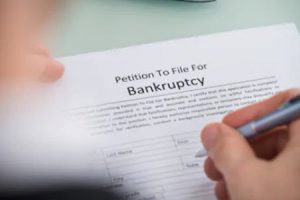The Different Kinds of Bankruptcy in Indiana

After many years of decline, the bankruptcy filing rate inched up in April 2019. Many areas of the country have not yet fully recovered from the Great Recession, but to almost all moneylenders, this economic downturn is a distant memory. So, debt-buyers and other creditors are more aggressive than ever when it comes to collecting delinquent accounts.
A bankruptcy is not only the best way to end creditor harassment in the short term. It is also the best way to manage debts in the long term. Here in Indiana, most filers have basically three bankruptcy options.
Chapter 7
During times of financial crisis, such as a divorce, extended illness, or job loss, unsecured debts often pile up. These obligations include things like:
- – Credit cards,
- – Payday loans, and
- – Medical bills.
High interest debts, like credit cards and payday loans, drag many families down. In other areas, most notably medical bills, debt-buyers use borderline illegal tactics to collect these debts.
Bankruptcy’s Automatic Stay, which is part of a Chapter 7, immediately stops all creditor adverse actions, such as:
- – Repossession,
- – Wage garnishment,
- – Lawsuits,
- – Harassing phone calls, and
- – Foreclosure.
In most cases, the Automatic Stay takes effect immediately and remains in effect as long as the case is active.
About six weeks after debtors file their voluntary petitions, a trustee (person who oversees the bankruptcy for the judge) reviews the paperwork and looks for any red flags. Assuming there are none, the judge usually signs a discharge order a short time thereafter. This discharge order removes the legal obligation to pay the aforementioned unsecured debts.
Most filers qualify for Chapter 7, if their household income is below the average level for other Indiana households of that same size. Truthfully, if household income is substantially above average, bankruptcy may not be an appropriate remedy. Other debt relief options are available.
Chapter 13
Other families struggle with secured debts, such as home mortgage and auto loan payments. Legally, creditors may begin repossession or foreclosure proceedings after just one missed payment, in most cases.
Chapter 13’s Automatic Stay stops these adverse actions. Additionally, Chapter 13 protects most assets from creditor seizure, such as:
- – House,
- – Car,
- – Retirement account, and
- – Personal property.
These same exemptions usually apply in Chapter 7 as well.
The next part of a Chapter 13 is much different from a Chapter 7. The trustee basically puts the debtor on an allowance for either three or five years. After the debtor pays current living expenses, everything else goes to repay secured debt delinquency. Since the Automatic Stay usually remains in place, creditors must usually accept this income-based repayment plan.
At the end of the protected repayment period, the debtor has a zero past-due balance on all secured debts and the judge discharges any remaining unsecured debts. That’s the very definition of a fresh financial start.
Chapter 20
This Chapter 13/Chapter 7 hybrid is not in the books, but an experienced Chicago bankruptcy attorney knows how to use it to benefit clients. In most cases, debtors may convert from Chapter 13 to Chapter 7, or vice versa, at any time.
Some families start with a Chapter 13 bankruptcy. If they cannot sustain the monthly debt consolidation payments, they can convert to Chapter 7. There are no more monthly payments, and the family gets a fresh start sooner.
Other families need extra time to catch up on debt payments. To extend the repayment period, they may file Chapter 7 and then file a Chapter 13.
Count on Experienced Lawyers
Distressed debtors have several legal options. For a free consultation with an experienced Chicago bankruptcy attorney, contact the Bentz Holguin Law Firm, LLC. We routinely handle matters in Illinois and Indiana.
Resource:
abi-org-corp.s3.amazonaws.com/articles/aacer-apr-2019-nationwide-bankruptcy-filings-by-state-and-jurisdiction.xlsx


